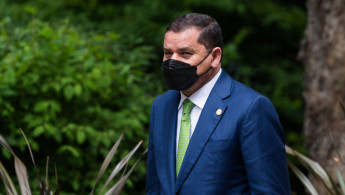Libya court upholds presidential bid of PM Dbeibah
A Libyan appeals court on Wednesday rejected two petitions against interim prime minister Abdulhamid Dbeibah's candidacy in this month's presidential election, Libyan media reported.
The cases argued that Dbeibah was not eligible as he had not quit his post three months before the December 24 vote as required by a controversial electoral law passed in September.
The Tripoli appeals court had agreed to examine the petitions, filed by rival candidates including influential former interior minister Fathi Bashagha.
But on Wednesday, Dbeibah's "appeal was accepted, allowing (him) to take part in the election," his lawyer Abdulraouf Qanbij told journalists at the court.
He added the ruling was "final and cannot be appealed".
Dbeibah, a billionaire tycoon from the western port city of Misrata, was appointed head of a transitional administration in February with a mandate to lead the North African country into parliamentary and presidential elections, part of a United Nations-led peace process aimed at ending a decade of conflict.
The elections have been beset by disputes over their legal basis and deep divisions between prominent candidates including Dbeibah, eastern military chief Khalifa Haftar and Seif al-Islam Gaddafi, son of dictator Muammar Gaddafi, whose ouster in a 2011 revolt plunged the country into a decade of violence.
An electoral law signed in September by the speaker of the eastern-based parliament, Aguila Saleh, has sparked anger in the country's west, where many accuse him of bypassing protocol and pushing through legislation favouring a run by his ally Haftar.
Earlier this week, gunmen backing Haftar blocked roads leading to a court in the southern city of Sebha that had been set to examine an appeal by Seif al-Islam Gaddafi after opponents petitioned against his candidacy in the polls.
Judges in the case decided on Tuesday to indefinitely postpone ruling on the case.
On Tuesday, interim interior minister Khaled Mazen said ongoing security incidents could lead to the elections being postponed.
Western officials have lobbied hard for the polls to go ahead as scheduled.





 Follow the Middle East's top stories in English at The New Arab on Google News
Follow the Middle East's top stories in English at The New Arab on Google News


